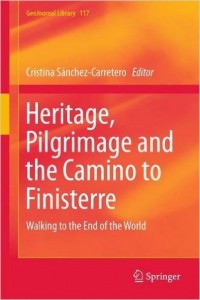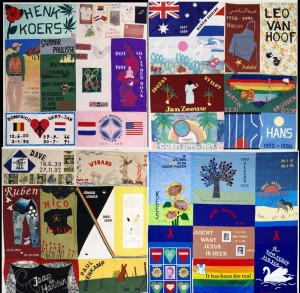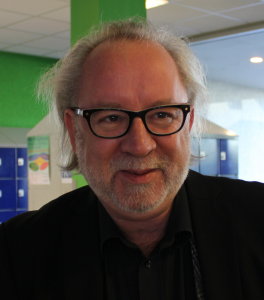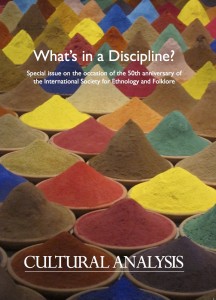Application
The Institute of Folklore Studies/European Ethnology- Faculty of History and Philosophy (FB 08)) of the Westfälische Wilhelms-Universität Münster (WWU)- invites applications for the position of a full professorship, starting on February 1, 2019:
CfA: Professorship (W2) in European Ethnology, University of Münster/Germany
Applications are requested only in electronic form (one PDF file) by March 10, 2017.
For more information: follow the link.
World Storytelling Day
World Storytelling Day is an annual event on (or around) March 20th. That day storytellers from all over the world, both amateurs and professionals, are telling their stories on all kinds of different places in towns and villages, such as schools, libraries or retirement homes. In this way storytellers want to bring the art and fun of storytelling to the attention of a wide audience and show the power of oral tradition.
Every year World Storytelling Day has a central theme to express the worldwide alliance of all the storytellers. For 2017 that is ‘Transformation’ in the broadest meaning of the word.
In the Netherlands the Dutch Storytelling Foundation encourages storytellers to join the World Storytelling Day and spreads the word about this event, among other things by their website.
At the Meertens Institute researcher Theo Meder is chairman of the Narrative Culture Foundation, a foundation that is involved in the organization of the World Storytelling Day.
New publication
Mid-December 2016 the next book is published:
Victoria Hegner and Peter Jan Margry (eds), Spiritualizing the City. Agency and Resilience of the Urban and Urbanesque Habitat. Routledge 2017.
‘Spiritualizing the City’ explores the complex interplay between the modern city and new religious and spiritual movement, analyzing the relationship between the city and religious belief and practice.
More information about this book.
PhD defence Folgert Karsdorp
On Tuesday December 6, 2016 the PhD defence of Folgert Karsdorp has taken place at the Radbout University Nijmegen. In his dissertation, Retelling stories: a computational-evolutionary perspective, Folgert Karsdorp studied retellings of famous fairy tales, for instance ‘Little Red Riding Hood’. His aim was to learn more about the factors that influence storytelling and the way in which the various versions form a network with one another. His study is based on computational cognitive modeling of language and is specifically focused on mechanisms which are the basis for distribution and change of folk tales.
Supervisors:
Theo Meder and Peter van Kranenburg; Meertens Institute Amsterdam
Antal van den Bosch; Radbout University Nijmegen
Franciska de Jong; University of Twente, Erasmus University Rotterdam, Utrecht University
Special guest was prof. dr. Tim Tangherlini, University of California Los Angeles, as opponent.
Folgert Karsdorps PhD was part of the Tunes and Tales project, funded by the Computational Humanities Program of the KNAW.
More about Folgert Karsdorps PhD: read the interview (in Dutch) at ‘NEMO Kennislink‘.
New Publication
Billy Ehn, Orvar Löfgren and Richard Wil, Exploring everyday life. Strategies for ethnographic and cultural analyses. London: Rowman & Littlefield, 2016.
‘Exploring everyday life’ discusses the numerous tasks and routines, and the role they play, in our daily life.
Interview
The Dutch paper NRC of September 22, 2016 has published an interview with Peter Jan Margry, researcher at the Meertens Institute, about alternative medicine and their users.
For the complete text: follow the link
AIDS Memorial Culture in the Netherlands
In a collaboration between Meertens Institute and the Dutch Open Air Museum, a research on AIDS Memorial Culture in the Netherlands will be conducted by Jorien Posthouwer as part of her internship.
This year, the Dutch Open Air Museum will receive five AIDS Memorial Quilts for their collection from Stichting NAMEN. Offering these Quilts to a museum is part of a musealisation process whereby they change from activist and commemorative objects to heritage. At the same time, Stichting NAMEN is creating an AIDS Monument in Amsterdam. Both objects function in a different way as commemoration objects. While the Quilt is about the personal, the individual memories and the life stories; the AIDS monument functions as a homage in the public space towards the deceased and everyone who lives with HIV. Furthermore, the monument functions as an ode to Amsterdam, “known for its tolerance of people who are different”.
This ‘tolerance’ is often mentioned as an essential part of ‘Dutch’ culture and history. Homo emancipation, tolerance and sexual liberties are recent phenomenon, but appear in the public debate as a fundamental, essential part of ‘Dutch’ culture. HIV/AIDS is partly closely connected to, and strongly associated with tolerance, homosexuality and sexual liberty. How these ideas of what is ‘typical’ or ‘essential’ Dutch relate to memorial culture of AIDS in The Netherlands is the focus of this research. By comparing the externally invented, uniform and public monument and the intimate, personal and by the bereaved created Quilts, and analysing the related rituals, the research will explore different sides of the culture of commemoration.
Theo Meder: Professor Folktales and Narrative Culture
Since 1 September 2015 Theo Meder, senior researcher at the Meertens Institute, is endowed professor ‘Volksverhaal en vertelcultuur van de middeleeuwen tot heden in Nederland in een internationale context’ (Folktales and Narrative Culture from the Middle Ages until today in the Netherlands in an international perspective) at the University of Groningen.
New publication
The project “Processes of Heritageization along the Camino of Santiago de Compostela: route branch Santiago-Fisterra-Muxia” (Heritage Laboratory (LaPa) of the research center P. Sarmiento in Santiago (Spanish National Research Council) in collaboration with the Meertens Institute) resulted in a new publication including two articles of Peter Jan Margry.

Sánchez-Carretero (Ed.): Heritage, Pilgrimage and the Camino to Finisterre. Walking to the End of the World. Series: GeoJournal Library, Vol. 117
This book presents research concerning the effects of the Camino to Finisterre on the daily lives of the populations who live along the route, and the heritagization processes that exploitation of the Camino for tourism purposes involves. Rather than focusing on the route to Santiago de Compostela and the pilgrimage itself, it instead examines a peculiar part of the route, the Camino to Finisterre, employing multiple perspectives that consider the processes of heritagization, the effects of the pilgrimage on local communities, and the motivations of the pilgrims. The book is based on a three-year research project and is the result of a multidisciplinary collaboration between anthropologists, sociologists, historians and archaeologists.
Instead of ending in Santiago, as the rest of the Caminos do, this route continues to the cape of Finisterre on the Galician Atlantic coast. This part of the Camino de Santiago is not officially recognized by the Catholic Church and does not count as part of reaching Compostela, the recognition granted by the Catholic Church to those pilgrims who have walked at least 100 km. For this reason, as well as its relationship with the sun cult, many pilgrims call this route “the Camino of the atheists.” In fact, the Catholic Church is a strong force for the heritagization of the rest of the Caminos, and maintains a clear ignoratio strategy concerning the Finisterre route: Officially, the church neither opposes nor recognizes this route.
New Publication
Cultural Analysis. An Interdisciplinary Forum on Folkore and Popular Culture, Volume 13:
What’s in a Discipline?
Special issue on the occasion of the 50th anniversary of the International Society for Ethnology and Folklore
ARTICLES
Valdimar Tr. Hafstein and Peter Jan Margry: What’s in a Discipline?
Konrad Köstlin: On Anniversaries
Bjarne Rogan: When the Folklorists Won the Battle but Lost the War: The Cumbersome (Re-)Birth of SIEF in 1964
Jasna Èapo: Ethnology and Anthropology in Europe: Towards a Trans-National Discipline
Orvar Löfgren: The Black Box of Everyday Life: Entanglements of Stuff, Affects, and Activities
RESPONSES
Cristina Sanchez-Carretero: Feeling at Home: The Everyday Life of a Non-Discipline, or How to Celebrate Daily Routines of a Society
Kristin Kuutma: Agonistic Disciplines and Existential Anxieties A Reflective Response
Cultural Analysis is an interdisciplinary, peer-reviewed journal dedicated to investigating expressive and everyday culture. The journal features analytical research articles, but also includes notes, reviews, and cross-disciplinary responses.
You will find the issue at socrates.berkeley.edu/~caforum/
‘European Ethnology is really a strange subject because it is a bit of everything, which I think is a great thing about it. But above all it is a study of everyday life’. [Orvar Löfgren]
Het fenomeen Hazes

In January 2015 the book by Irene Stengs Het fenomeen Hazes. Het venster op Nederland (The phenomenon Hazes. The window at The Netherlands) has been published by Amsterdam University Press. It has been ten years in 2014 since André Hazes, one of the most successful Dutch singers, passed away. The anniversary of his dead became an opportunity to reflect on how the popular star became a national phenomenon. The book is a short history of cultural memory and it shows a specific character of entertainment in The Netherlands.









